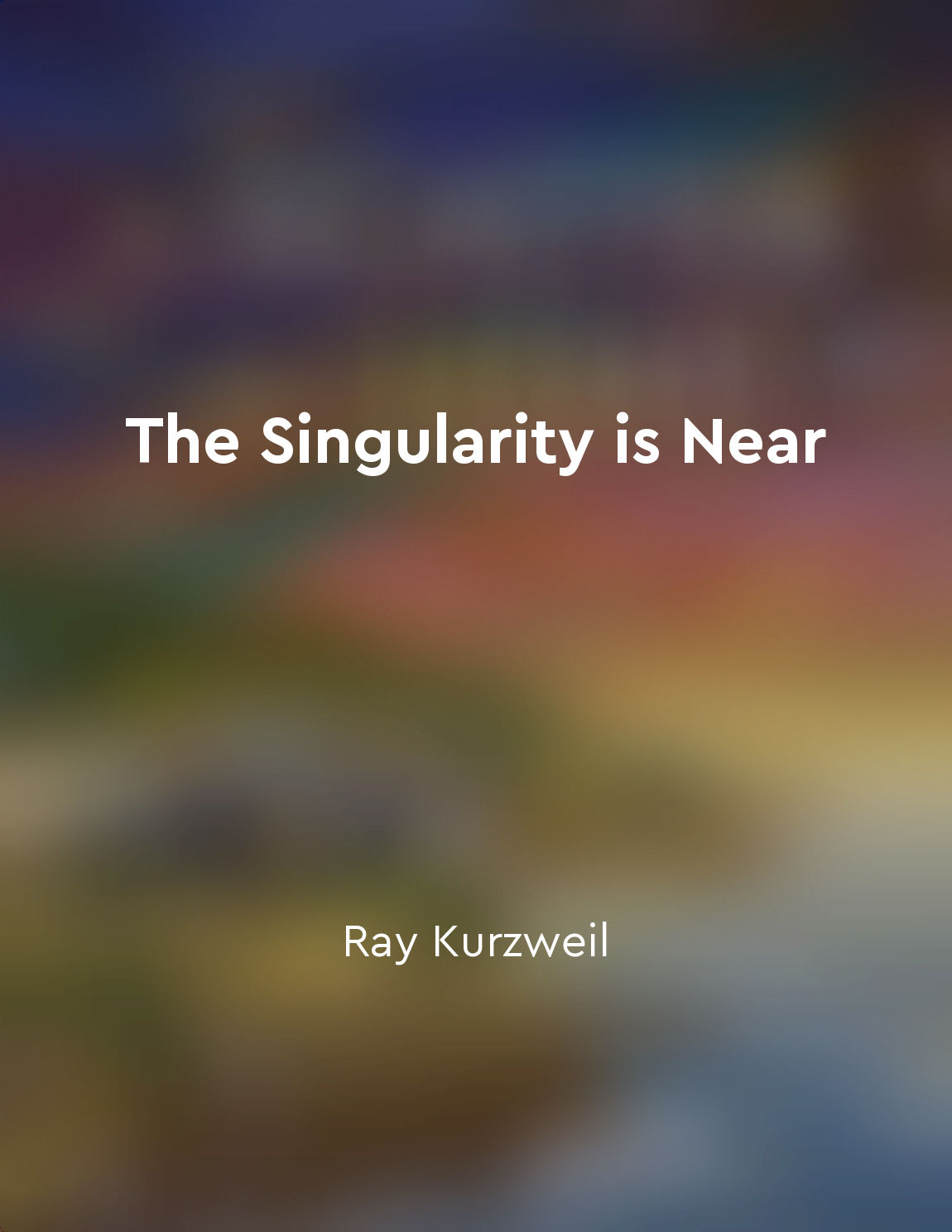The influence of AI on the creative process from "summary" of The Creativity Code by Marcus Du Sautoy
AI is becoming increasingly involved in the creative process, raising questions about the nature of creativity itself. Can machines truly be creative, or are they simply mimicking human creativity? This debate is at the heart of the intersection between AI and creativity. One perspective is that AI can enhance human creativity by providing new tools and perspectives. For example, AI algorithms can analyze vast amounts of data to identify patterns and connections that humans might miss. This can inspire artists, writers, and musicians to explore new ideas and approaches that they might not have considered otherwise. In this way, AI can act as a catalyst for human creativity, pushing boundaries and challenging conventions. On the other hand, some argue that AI lacks the essential ingredient of true creativity: consciousness. While AI can produce impressive works of art, music, and literature, it does not have subjective experiences or emotions driving its creative output. As a result, some critics believe that AI can never truly be creative in the same way that humans are.- One thing is clear: AI is already shaping the creative landscape in significant ways. From AI-generated art to music composed by algorithms, the influence of AI on the creative process is undeniable. As technology continues to advance, the relationship between AI and creativity will only become more complex and nuanced. Ultimately, the role of AI in creativity raises profound questions about what it means to be human and what constitutes true creativity.
Similar Posts

Age reversal therapies will become mainstream
As we continue to unlock the mysteries of biology and genetics, it is becoming increasingly clear that age reversal therapies a...
Embracing change is crucial
As we navigate through the rapidly evolving landscape of the Second Machine Age, one thing becomes abundantly clear - change is...
Technology can distance individuals from the consequences of their actions
Nicholas Carr explores a thought-provoking concept in his book 'The Glass Cage' - the idea that technology has the power to shi...
Emphasizing passion in learning inspires creativity
Passion is a powerful force that drives individuals to pursue their interests with zeal and enthusiasm. When students are encou...
Hedge funds relying on algorithms
Hedge funds have long been known for their secretive ways and lucrative returns. These investment funds pool money from wealthy...

Failure is often a necessary part of the creative process
Failure is not something we typically associate with success. In fact, we often go to great lengths to avoid failure, seeing it...
Authoritative monologue limits the potential of language
The concept of authoritative monologue limiting the potential of language is a central idea in Bakhtin's work. Bakhtin argues t...

Engaging in creative activities can reduce stress
Engaging in creative activities, such as painting, writing, or crafting, can serve as a powerful outlet for stress reduction. W...
Balance structure and flexibility in your creative process
Maintaining a delicate balance between structure and flexibility in your creative process is crucial for sustaining your creati...
AI experts discuss the future of artificial intelligence
In a groundbreaking collection of interviews, leading figures in the field of artificial intelligence come together to share th...

